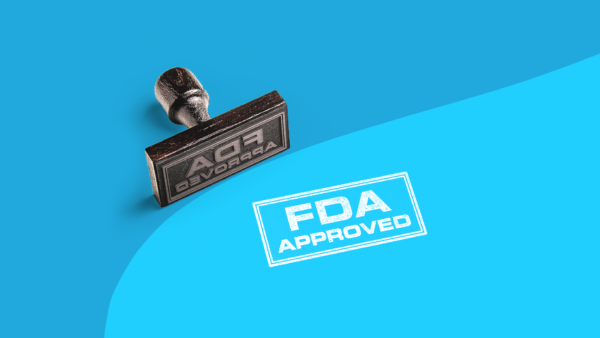Common naproxen side effects | Serious side effects | Sexual dysfunction | High blood pressure | Chest pain | Weight gain | Water retention | Side effects timeline | Contraindications | Warnings | Interactions | How to avoid side effects | How to treat side effects
Naproxen is a generic pain relief and fever medication. The nonprescription version is better known as brand-name Aleve and is appropriate for mild to moderate fever, aches, and pains. Prescription naproxen, also prescribed as brand-name Naprosyn, Naprelan, and Anaprox DS, is used for osteoarthritis, rheumatoid arthritis, ankylosing spondylitis, gout attacks, bursitis, tendonitis, menstrual pain, and other more severe pain problems. Naproxen belongs to a family of drugs called nonsteroidal anti-inflammatory drugs (NSAIDs) that relieve pain by blocking the production of prostaglandins, the substances responsible for inflammation. Aspirin and ibuprofen are also NSAIDs. It should come as no surprise, then, that naproxen has many of the same side effects as aspirin and ibuprofen.
Common side effects of naproxen
Stomach problems and other gastrointestinal complaints are the most common side effects of naproxen. Many mild side effects are possible and listed in order of incidence, they are:
- Headache
- Indigestion
- Vomiting
- Gas (flatulence)
- Flu
- Diarrhea
- Constipation
- Heartburn
- Stomach pain
- Nausea
- Constipation
- Drowsiness
- Dizziness
- Liver problems
- Ringing in the ears
- Skin rash
- Itching
- Skin discoloration
- Fluid retention
- Trouble breathing
- Back pain
- Infection
- Stuffy sinuses
- Stuffy nose
- Sore throat
- Weakness
- Gastritis
- Anemia
Serious side effects of naproxen
Both prescription and nonprescription naproxen can produce serious and even life-threatening side effects including:
- Severe gastrointestinal problems such as stomach ulcers, bleeding, and perforation
- Vision problems
- High blood pressure
- Blood clots
- Chest pain
- Heart attack
- Stroke
- Congestive heart failure
- Kidney dysfunction or kidney damage
- Liver damage
- Blood problems
- Severe allergic reactions
Sexual dysfunction
Regular use of nonsteroidal anti-inflammatory drugs is associated with erectile dysfunction in older men, but how much is uncertain. Initial research concluded that regular NSAID users were almost 1.4 times more likely to have erectile problems than other men of a similar age and with similar health conditions. Later research has demonstrated varying association based on indication for use of the NSAID. No matter what the incidence, it’s safe to say that using drugs like aspirin, ibuprofen, and naproxen on a regular basis may cause sexual dysfunction in men. Keep in mind, however, that many of the conditions treated by NSAIDs, such as muscle pain, arthritis, sciatica, headache, and atherosclerosis, are far more likely to cause erectile dysfunction. It’s a trade-off, then.
High blood pressure
All NSAIDs, including naproxen, can cause or worsen high blood pressure. For naproxen, the exact incidence may be as high as 3 out of 100 people taking the drug, but those most at risk are people who already have high blood pressure and are taking blood pressure medications like ACE inhibitors and diuretics. High blood pressure can lead to serious cardiovascular events, so people with high blood pressure should monitor their blood pressure when taking naproxen or other NSAIDs.
Chest pain
Chest pain is not one of naproxen’s most common side effects (3% or less), but it is serious. However, because non-aspirin NSAIDs like naproxen can cause heart attack or stroke, if chest pain is experienced when taking naproxen, get immediate medical care.
Weight gain
Naproxen is not associated with weight gain. However, the drug can cause fluid retention, and swelling, particularly when combined with other drugs that also might cause water retention. Increased fluid retention will, of course, add weight to the body. This is, however, just water weight. Though it’s not good, body weight will return to normal once the offending drugs have been discontinued.
Water retention
Speaking of fluid retention, as much as 9% of people taking naproxen will experience some swelling and another 3% will see their hands, feet, and ankles swell because of water retention. These are delayed side effects that mainly occur in people taking naproxen over several days or longer. For most people, this is inconvenient, but for people with edema or heart failure, it’s a serious problem. In those cases, discuss the issue with a healthcare professional.
How soon do naproxen side effects start?
Naproxen usually takes around an hour to start showing effects and hits its peak in anywhere from 2 to 4 hours. Many side effects such as headaches and less serious stomach problems could manifest within that time even after one dose, though they become more likely as naproxen levels build in the body before hitting a maximum in a few days. Some side effects are delayed and may take a few days or weeks of continuous use to become a problem, including sinus problems, skin discoloration, ringing in the ears, edema, constipation, and serious gastrointestinal problems.
How long do naproxen side effects last?
Most of naproxen’s side effects only last as long as naproxen is working in the body, about two days based on its half-life of 12 to 17 hours. It may take the body a while to recover from some of the delayed side effects such as swelling, anemia, and blood problems.
What are the long-term side effects of naproxen?
Naproxen is a risky drug to take over the long term. Over-the-counter naproxen is only intended for short-term use, while prescription naproxen is only intended for time-limited use (no more than six months). This is because the long-term use of naproxen can produce side effects such as edema, blood disorders, kidney dysfunction, liver problems, blood clots, and serious gastrointestinal injury. The risk of these long-term side effects is proportional to the length of time the drug is taken. In addition, many of these long-term side effects can last for years or a lifetime after the drug has been stopped.
Naproxen contraindications
Naproxen is contraindicated for anyone with:
- Known allergies to naproxen or other NSAIDs
- A history of aspirin-induced or NSAID-induced asthma
- A history of aspirin-induced or NSAID-induced hives
- Aspirin-exacerbated respiratory disease
- Severe kidney disease
Naproxen and other NSAIDs should never be taken in the days before or after coronary artery bypass graft (CABG) surgery.
Pregnancy
Naproxen use should be avoided by pregnant women starting at the 30th week because it could cause a heart defect in the newborn. Beyond that, healthcare professionals are not certain if naproxen is safe to use during pregnancy, but there is no evidence that it causes birth defects when taken early in pregnancy. However, naproxen could cause problems with amniotic fluid when taken beyond week 20.
Breastfeeding
Naproxen is considered compatible with breastfeeding, though it is present in breast milk in small amounts.
Children
Over-the-counter naproxen should not be given to children younger than 12 years of age. There are no OTC naproxen products that allow for pediatric dosing. However, prescription naproxen is FDA approved for use in children as young as 2 years old for juvenile idiopathic arthritis or other pain. In those cases, the treatment is supervised by a healthcare professional and the doses are determined by the child’s weight.
Naproxen warnings
Don’t be fooled by how easily naproxen can be purchased at a drug or grocery store. Naproxen should be used with care. The first step is to learn all the possible pitfalls and factor those in when deciding to take this drug.
Black box warning
The FDA includes a cautionary warning that naproxen could cause gastrointestinal bleeding, ulcers, perforation, blood clots, stroke, and heart attack. These serious and even life-threatening adverse effects can happen early, without warning, and are more likely to occur the longer the drug is taken.
Cautions
Some health conditions can be worsened by naproxen or they increase the risks of side effects including:
- Kidney problems
- Liver problems
- Cardiovascular diseases including heart attack and heart failure
- Risk factors for heart disease
- Hypertension
- Gastrointestinal disorders such as peptic ulcer disease (PUD) and bleeding
- Bleeding disorders
- Water retention
- Dehydration
- Asthma
Fertility
Naproxen can delay ovulation. Women trying to conceive should consider avoiding NSAIDs, particularly if they have problems conceiving or are undergoing infertility treatment.
Seniors
People older than 65 or who are debilitated should exercise greater caution with NSAIDs like naproxen. They are more vulnerable to some of the more serious side effects including kidney problems, gastrointestinal bleeding, ulcer, and perforation.
Abuse and dependence
Naproxen is not considered a drug with the risk for abuse, physical dependence, or withdrawal.
Overuse
Although naproxen and other NSAIDs are not associated with abuse or physical dependence, they can be overused. Naproxen should not be taken continuously except under the care of a healthcare professional. Chronic use of naproxen increases the risks of serious side effects such as bleeding, blood clots, heart attack, stroke, and death.
Overdose
Call a poison helpline or get medical attention if too much naproxen is taken. Most people who overdose will experience stomach pain, nausea, and feel tired, but a large overdose can produce seizures, slowed breathing, high blood pressure, kidney failure, and coma.
People taking nonprescription naproxen should not exceed 440 mg per day, but the maximum daily dose for prescription naproxen is 1650 mg per day for a limited time and 1500 mg per day over the long term.
Do not take prescription-strength doses with over-the-counter naproxen or Aleve. Although these doses of naproxen are considered safe for people under the care of a healthcare professional, they are not safe when self-medicating.
Naproxen interactions
Naproxen’s side effects—particularly the serious ones—could be worsened when naproxen is combined with other drugs. In some cases, though, naproxen could increase the effects and side effects of other drugs. Naproxen’s most significant drug interactions are as follows:
- Ketorolac, a prescription NSAID that is never combined with naproxen
- Other NSAIDs
- Salicylates
- Blood thinners such as warfarin
- Blood pressure medications, particularly ACE inhibitors, angiotensin receptor blockers (ARBs), and beta blockers,
- Thiazide diuretics and loop diuretics
- Corticosteroids
- Aminoglycoside antibiotics
- SSRIs
- SNRIs
- Alcohol
- Smoking
- Dietary supplements such as omega-3 fatty acids
How to avoid naproxen side effects
As an over-the-counter medication, ibuprofen is generally safe for people to take as directed. Still, side effects can be a problem, so here are a few ways to avoid them:
1. Take naproxen as directed
With OTC naproxen, please read and follow the instructions on the package, and the instructions included in the drug information. For prescription naproxen, follow the instructions given by the prescriber or written on the prescription label. If a dose of prescription naproxen is missed, take it when remembered unless it’s almost time for the next dose. In that case, skip the missed dose and take the next dose on time.
2. Take naproxen only as needed
Take the smallest possible dose for the shortest period possible when taking OTC naproxen. Once pain or fever has faded, stop taking the drug.
3. Do not take other NSAIDs with naproxen
Whether taking prescription or nonprescription naproxen, don’t add similar drugs to the mix like aspirin or ibuprofen. Many cold and flu combination drugs also contain NSAIDs. The more NSAIDs taken, the greater the chance of side effects.
4. Avoid smoking and alcohol
To avoid stomach or bleeding problems, don’t drink or smoke when taking NSAIDs.
5. Eat before taking naproxen
Another way to prevent stomach problems is to have a snack or meal right before taking naproxen.
6. Always tell healthcare providers about naproxen
Make sure that healthcare providers know naproxen is being taken every once in a while. In this way, side effects due to drug interactions can be avoided.
How to treat side effects of naproxen
Side effects are commonly experienced when using naproxen, particularly in people with pre-existing medical conditions or those taking prescription naproxen. When problems happen, there are solutions.
Stomach pain
For stomach pain, upset stomach, or heartburn, use antacids. The best time to take them is right before a dose. If there’s bleeding, then medical attention is needed. Watch for symptoms such as vomiting blood, blood clots (“coffee grounds vomit”), fainting, or black, tarry stools.
Kidney problems
Kidney problems due to naproxen will require medical attention. The most obvious symptoms are:
- Problems urinating
- Hand, ankle, and foot swelling
- Trouble breathing
- Fatigue
Heart problems or blood clots
Get emergency medical attention if you experience chest pain, shortness of breath, weakness on one side of the body, or rapid swelling in the legs.
Sources
- Aleve caplets drug information, U.S. National Library of Medicine
- FDA Drug Safety Communication: FDA strengthens warning that non-aspirin nonsteroidal anti-inflammatory drugs (NSAIDs) can cause heart attacks or strokes, U.S. Food and Drug Administration
- Naproxen, Epocrates
- Naproxen compound summary, NIH National Library of Medicine
- Naproxen sodium drug summary, Prescriber’s Digital Reference
- Naproxen sodium tablet prescribing information, U.S. National Library of Medicine
- Non-steroidal anti-inflammatory drug use not associated with erectile dysfunction risk: Results from the Prostate Cancer Prevention Trial, BJU International
- Regular nonsteroidal anti-inflammatory drug use and erectile dysfunction, The Journal of Urology











